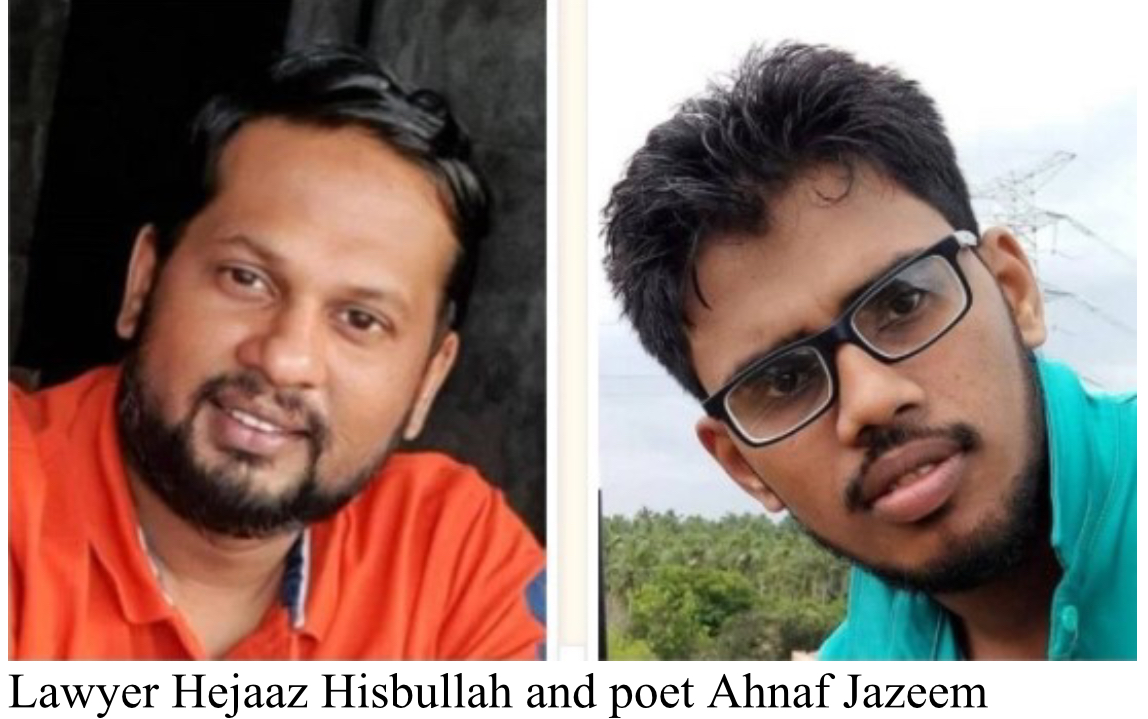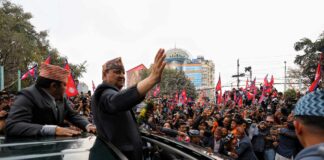Colombo
The Sri Lanka Collective for Consensus (SLCC), a group of concerned citizens from various walks of life, has made some suggestions to amend the draconian Prevention of Terrorism Act (PTA).
The PTA amendment Bill, prepared by the Gotabaya Rajapaksa government, is now before parliament in anticipation of the issue coming up in the February-March session of the UN Human Rights Council (UNHRC).
The SLCC says that the Prevention of Terrorism Act was introduced to the Sri Lankan legal system as a temporary law to deal with a growing armed insurrection. The PTA is being amended today in a time of peace and circumstances very different from when it was first introduced.
As pointed out by the government, the PTA is being amended for the first time in 43 years. SLCC recognizes some positive measures in the proposed revisions. These include: 1) Provision for detainees to apply for bail to the Appeal Court after one year of being detained 2)Ensuring that the magistrate looks into the conditions of detention periodically and 3) Obtaining a medical health check at the time of detention.
While welcoming these, and other improvements, the SLCC notes that the amendments do not touch the objectionable features such as the following: 1) The overbroad definition of terrorism 2) Detention orders given without supervision of the judiciary 3) Confessions to police continue to be admissible4) Despite the release on bail of some PTA detainees, lawyer Hejaaz Hizbullah and journalist Keerthi Ratnayake, among many others, remain in detention for long periods.
At SLCC’s meeting with the ministerial subcommittee under the chairmanship of Foreign Minister Prof. G.L. Peiris on 27 November 2021, it presented our position on the reform process.
SLCC wishes to reiterate the main elements again: a) Clarify the law; Define what terrorism is; b) Avoid extrajudicial actions: Limit all detentions and punishments to the courts of law; c) Ensure compatibility with the Constitution through vetting by the Supreme Court.
First, the term “terrorism” needs to be defined and not left open to arbitrary and subjective interpretations of political and administrative authorities and the security forces. Second, the powers of arrest and detention should be confined to the judiciary. The extrajudicial powers vested at present with political and administrative authorities and with the security forces need to be subject to judicial review. The powers to grant bail need to be vested with the more accessible magistrate courts as per criminal procedure code. Third, the legislation pertaining to the revised PTA needs to be vetted by the Supreme Court. Finally, natural justice principles and rights of individuals need to be honoured countrywide at every stage and should be parallel to the criminal procedure code.
Best Option: Repeal PTA
In the absence of the above the revision of a new draft would fall short of expectations by national and international standards of preventing terrorism. In this eventuality, SLCC believes the best option is for the PTA to be repealed and replaced with a new law that conforms to international standards.
SLCC observes that the powers of arbitrary arrest and detention given by the PTA to political and administrative authorities and to the security forces are frequently misused. They have impacted most severely on ethnic and religious minorities and also on political opponents of incumbent governments. The indemnity clauses that protect public officials need to be removed in cases of egregious abuse as decision makers should be responsible for their actions.
With the aim of protecting the human rights of citizens, meeting the expectations of the international community and securing the GSP Plus tariff concession, SLCC calls on the Government to further amend the PTA on the lines proposed or repeal it. This can be a part of the structural transformation in the country essential to sustainable peace and reconciliation in Sri Lanka.
The Sri Lankan Collective for Consensus is a group of individuals drawn from multiple sectors of society, religion, academia, and non-governmental organisations. They are committed to a Sri Lanka that is founded on ideals of pluralistic coexistence, human rights, and justice.
HRW calls for Moratorium
The Human Rights Watch (HRW) on Thursday said the Sri Lankan government needs to uphold its human rights obligations starting with genuine reform of the draconian PTA, accompanied by a moratorium on its use and the release of those unjustly jailed in its application.
“Cosmetic interventions won’t suffice,” the HRW said in a statement after the Sri Lankan Government Thursday tabled a bill in parliament to amend the PTA. The HRW noted that although the Sri Lanka’s Foreign Ministry is hailing it as a “most progressive step” towards bringing the notorious law in line with “international best practice”, the European Union is not buying it and that may mean trouble for the government.
“The proposed amendments were an attempt to salvage Sri Lanka’s tariff-free access to the EU market under the bloc’s GSP+ trading scheme, which is conditioned on respect for international human rights,” the HRW said.
But in a meeting in Brussels with their Sri Lankan counterparts, EU officials made it clear that “important elements had not been included in the Amendment Bill” and urged “further steps to make the PTA fully compliant with international norms”.
The EU also called for “practical and administrative steps to release on bail those detained under the PTA without charges”. Some detainees were released or bailed over recent weeks but many more remain in arbitrary detention, often held for months or years as a recent Human Rights Watch report shows.
“Sri Lankan activists, lawyers, and victims of past abuses and their families have campaigned for decades urging the repeal of the PTA, which is used to enable arbitrary detention and torture, targeting the minority Tamil and Muslim communities and suppressing civil society. The previous Government had promised to repeal the law, but failed to deliver,” the HRW noted.
The New York-based human rights organization said at risk of losing their GSP+ benefits, the administration of President Gotabaya Rajapaksa published in January the flimsy set of proposed amendments, only a few days ahead of a key meeting with the EU. Prior to the meeting, Sri Lanka’s Foreign Ministry issued a grossly inaccurate and threatening statement against recent testimony by a prominent human rights lawyer Ambika Satkunanathan to the European Parliament, HRW pointed out.
In December, UN experts identified five “necessary prerequisites” for Sri Lanka’s counterterrorism legislation to comply with international standards. The HRW said the EU should continue to insist that those benchmarks be met: the freedom of countless Sri Lankans hangs in the balance, as does the country’s GSP+ status, which is vital to the economy.
“To safeguard it, the Rajapaksa government needs to uphold its human rights obligations, starting with genuine reform of the PTA, accompanied by a moratorium on its use and the release of those unjustly jailed in its application. Cosmetic interventions won’t suffice.”
END



 Loading IntenseDebate Comments...
Loading IntenseDebate Comments...

